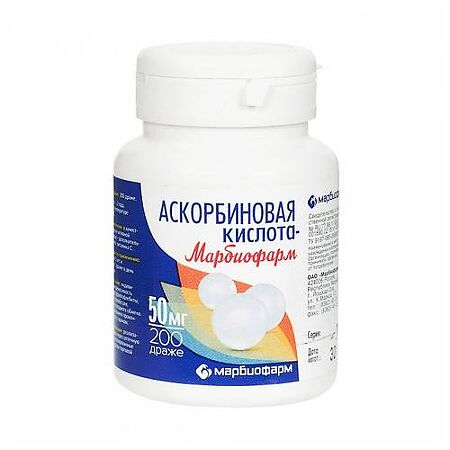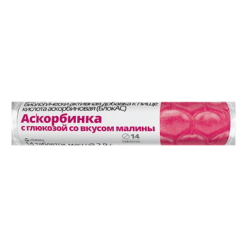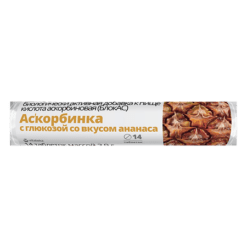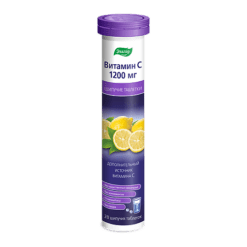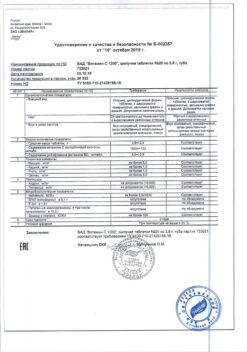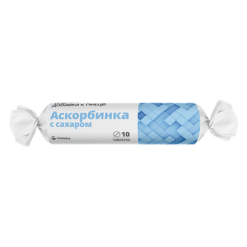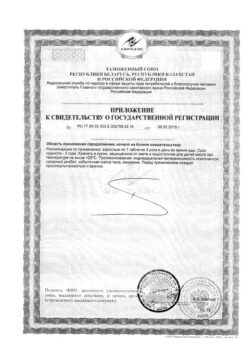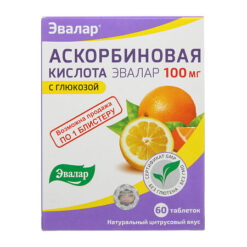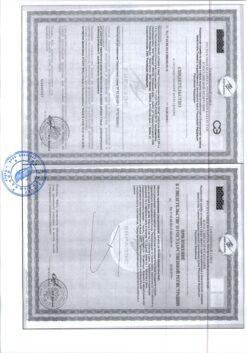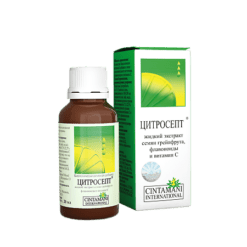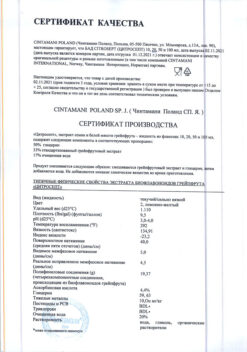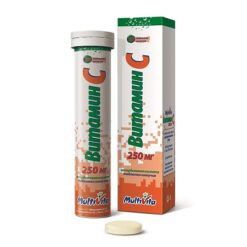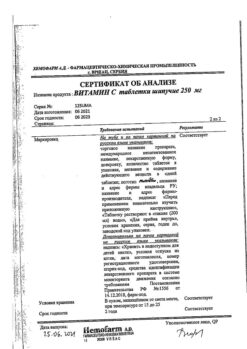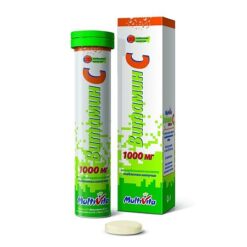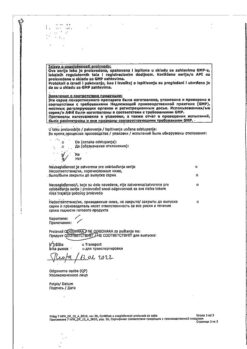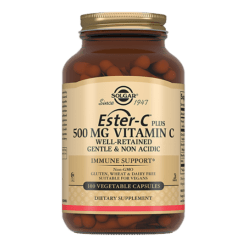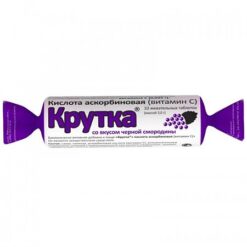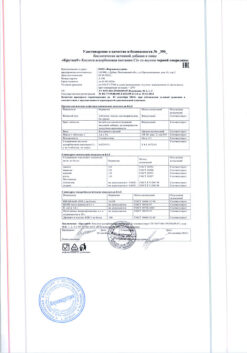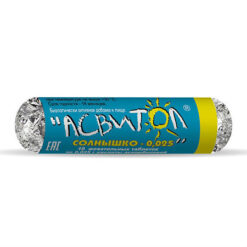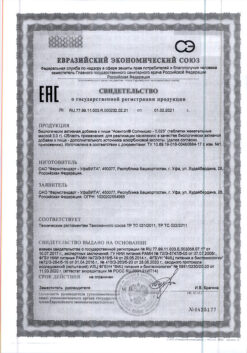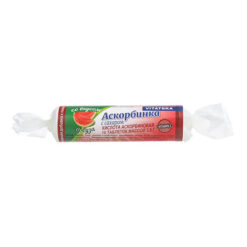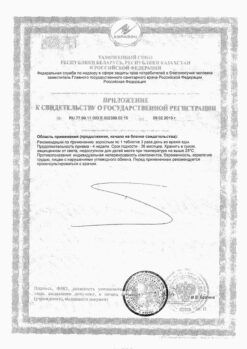No products in the cart.
Ascorbic acid dragee 50 mg dietary supplements, 200 pcs.
€1.00
Out of stock
(E-mail when Stock is available)
Description
Ascorbic acid is actively involved in many redox reactions, has a nonspecific general stimulating effect on the body. It increases the body’s adaptive capacity and resistance to infections; promotes regeneration processes.
Indications
Indications
Prevention and treatment of hypo-and avitaminosis of vitamin C.
As an adjunctive agent: hemorrhagic diathesis, nasal, uterine, pulmonary bleeding; overdose of anticoagulants; gastrointestinal diseases accompanied by impaired absorption of vitamin C; sluggishly healing wounds.
Elevated physical and mental stress, pregnancy and lactation, convalescence period after a serious long-term illness.
Composition
Composition
Per tablet:
Active ingredients:
0.05 g ascorbic acid
Excipients:
Sugar, starch treacle, sunflower oil, wax, talcum, aromatic essence, quinoline yellow dye E-104.
How to take, the dosage
How to take, the dosage
The drug is taken orally after meals.
For prophylaxis: 0.05-0.1 g (1-2 drops) for adults a day, 0.05 g (1 drop) a day for children from 5 years of age.
Treatment: 0.05-0.1 g (1-2 drops) for adults 3 to 5 times a day, for children from 5 years 0.05-0.1 g (1-2 drops) 2-3 times a day.
During pregnancy and breast-feeding 0.3 g (6 tablets) a day for 10-15 days, further 0.1 g (2 tablets a day) a day.
Interaction
Interaction
Increases blood concentrations of benzylpenicillin and tetracyclines; at a dose of 1 g / day increases the bioavailability of ethinylestradiol.
It improves intestinal absorption of iron preparations (converts trivalent iron to divalent iron); it may increase iron excretion if used concomitantly with deferoxamine.
Acetylsalicylic acid (ASA), oral contraceptives, fresh juices and alkaline drinking reduce absorption and assimilation.
Concomitant use with ASA increases urinary excretion of ascorbic acid and decreases excretion of ASA. Asc reduces absorption of ascorbic acid by about 30%.
It increases the risk of crystalluria when treated with salicylates and short-acting sulfonamides, slows renal excretion of acids, increases excretion of drugs that are alkaline (including alkaloids), reduces the blood concentration of oral contraceptives.
Enhances total clearance of ethanol, which in turn reduces the concentration of ascorbic acid in the body.
The drugs of the quinoline series (fluoroquinolones, etc.), calcium chloride, salicylates, glucocorticosteroids in long-term use deplete ascorbic acid reserves.
In concomitant use reduces the chronotropic effect of isoprenaline.
In long-term use or use in high doses may interfere with disulfiram-ethanol interaction.
In high doses increases renal excretion of mexiletine.
Barbiturates and primidone increase excretion of ascorbic acid in the urine. Reduces the therapeutic effects of antipsychotics (phenothiazine derivatives), tubal reabsorption of amphetamine and tricyclic antidepressants.
Special Instructions
Special Instructions
Due to the stimulating effect of ascorbic acid on the synthesis of corticosteroid hormones, adrenal function and blood pressure should be monitored.
Long-term use of high doses may suppress pancreatic insular function, so it should be regularly monitored during treatment.
In patients with elevated iron content in the body ascorbic acid should be used in minimal doses.
Prescribing ascorbic acid to patients with rapidly proliferating and intensely metastatic tumors may worsen the course of the process. As a reducing agent, ascorbic acid may distort the results of various laboratory tests (blood glucose, bilirubin, transaminase activity, LDH).
Contraindications
Contraindications
Hypersensitivity to the components of the drug, thrombophlebitis, susceptibility to thrombosis, diabetes mellitus.
With caution
Hyperoxalaturia, renal failure, hemochromatosis, thalassemia, polycythemia, leukemia, sideroblast anemia, glucose-6-phosphate dehydrogenase deficiency, sickle cell anemia, advanced malignant disease, pregnancy.
Overdose
Overdose
If more than 1 g per day is taken, heartburn, diarrhea, difficulty urinating or staining the urine red, hemolysis (in patients with glucose-6-phosphate dehydrogenase deficiency) are possible.
If any side effects occur, discontinue the drug and consult a physician.
Pregnancy use
Pregnancy use
The minimum daily requirement of ascorbic acid in the second to third trimesters of pregnancy is about 60 mg.
The minimum daily requirement during breastfeeding is 80 mg. The mother’s diet containing an adequate amount of ascorbic acid is sufficient to prevent vitamin C deficiency in the infant (it is recommended that the nursing mother does not exceed the maximum daily requirement of ascorbic acid).
Additional information
| Weight | 0.062 kg |
|---|---|
| Manufacturer | Marbiopharm, Russia |
| Brand | Marbiopharm |
Other forms…
Related products
Buy Ascorbic acid dragee 50 mg dietary supplements, 200 pcs. with delivery to USA, UK, Europe and over 120 other countries.

